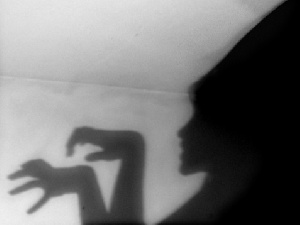Mrs. Esther Dey, Executive Director of Alzheimer’s and Related Disorders Association of Ghana (ARDAG) said at the weekend that victims of witches and faith-based camps in the country could be suffering from a medical condition referred to as Dementia.
She defined dementia as an umbrella term which covers a whole range of signs and symptoms that are related to certain conditions or illnesses of the brain, which is of grave public health consequence.
Mrs. Dey made these known to participants at a public outreach programme to create awareness on the disease for the aged and Churches at Bodada and Ayoma in the Volta region.
She said dementia was characterized by a progressive decline of a person’s mental ability, namely the ability to remember, make rational judgment, undertake daily tasks and to communicate.
Mrs. Dey indicated that because the disease affected the brain and the nervous system, sufferers could exhibit insanity, uncoordinated thoughts and abnormal traits that could give the obscure reason for their detention in witches and faith-based camps to undergo such inhumane abuses.
She said they were crimes perpetrated by relatives and community members acting from stark ignorance of the disease.
The executive director disclosed that according to the World Health Organisation, the number of people suffering from dementia around the globe was expected to reach 65.7million sufferers by 2030.
She added that by 2050 it was likely to rise by 70 per cent above today's figure of 35.6million sufferers and it was expected that 7.7million new cases of dementia would be reported each year - with a new person diagnosed every four seconds.
“The estimated annual cost of treatment and care is $604 billion (£379 billion)” she stated.
Mrs. Dey said the common types of dementia included Alzheimer’s disease (constituting about 70 percent of cases), vascular, dementia with Lewy bodies and Pick’s disease.
She said conditions which may develop into dementia included Parkinson’s disease, genetic/inherited illnesses (Huntington’s disease), Down’s syndrome resulting from infection, HIV, and Creutzfeld-Jacob disease.
Mrs. Dey said studies revealed that dementia affects the brain structure, especially the frontal lobes, and had rather higher rates in advanced economies compared to those of developing countries, where less studies had been done.
She said its outcomes included differential survival rates, the hiding of cases by relatives because of stigma, reluctance to seek medical assistance, the feeling that the old person had come to the end of his/her useful life, mis-diagnosis and defective case-finding techniques.
She said ARDAG, a not-for-profit entity was positioned to create awareness about the disease and establish state-of-the-art rehabilitation centres for sufferers of dementia across the country.
The Executive Director said the passage of the mental health law would help increase the national consciousness about such illnesses but appealed to the authorities to expedite action on the promulgation of the law on the aged.
Mrs. Dey advised relatives, families and community members to familiarise themselves with the disease to avoid subjecting sufferers to inhumane abuses at camps, stating that dementia was a medical condition that could be controlled by experts.
Health News of Tuesday, 2 October 2012
Source: GNA

















